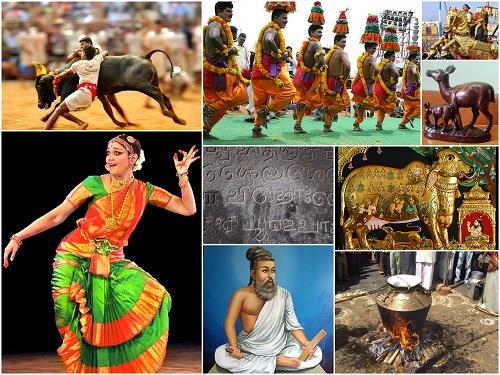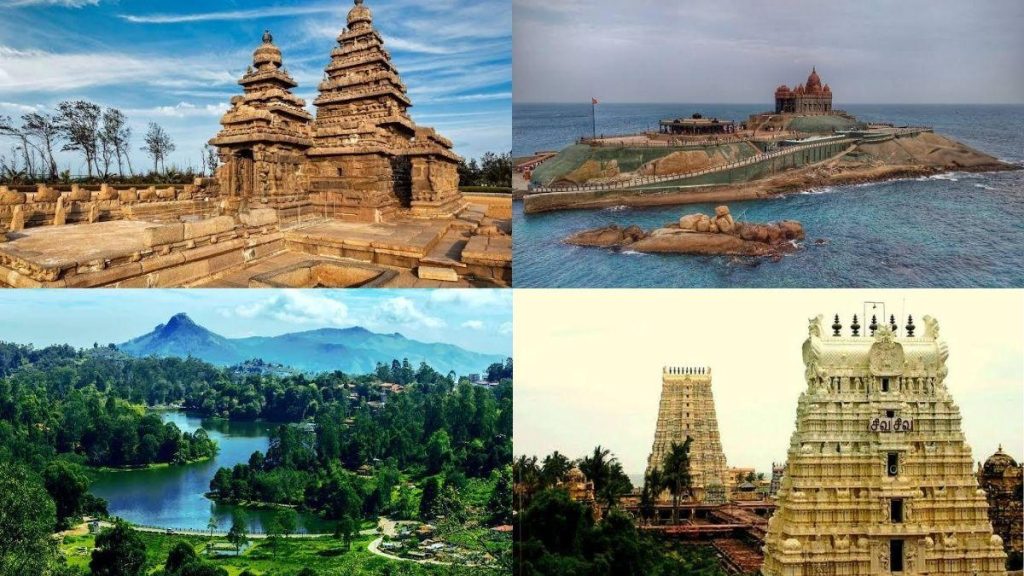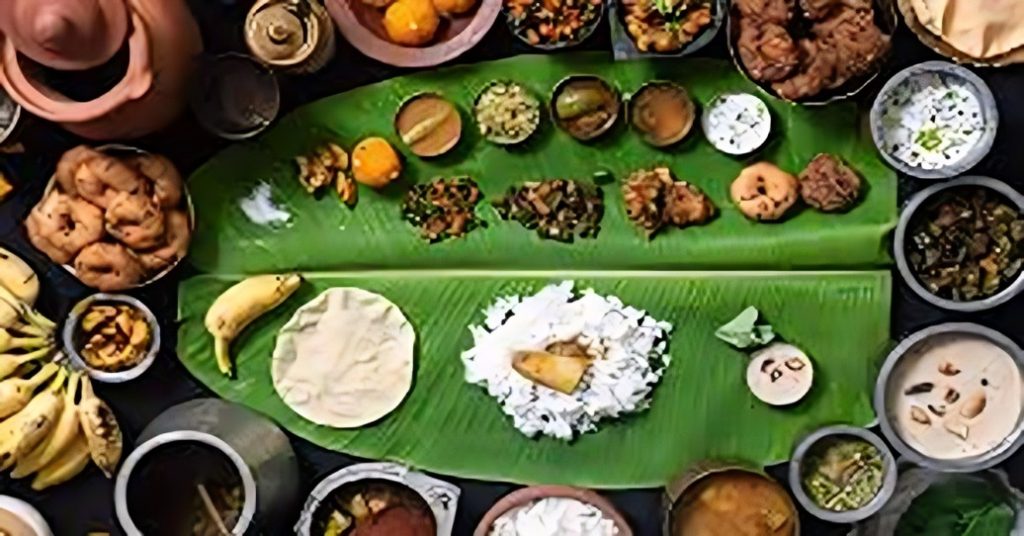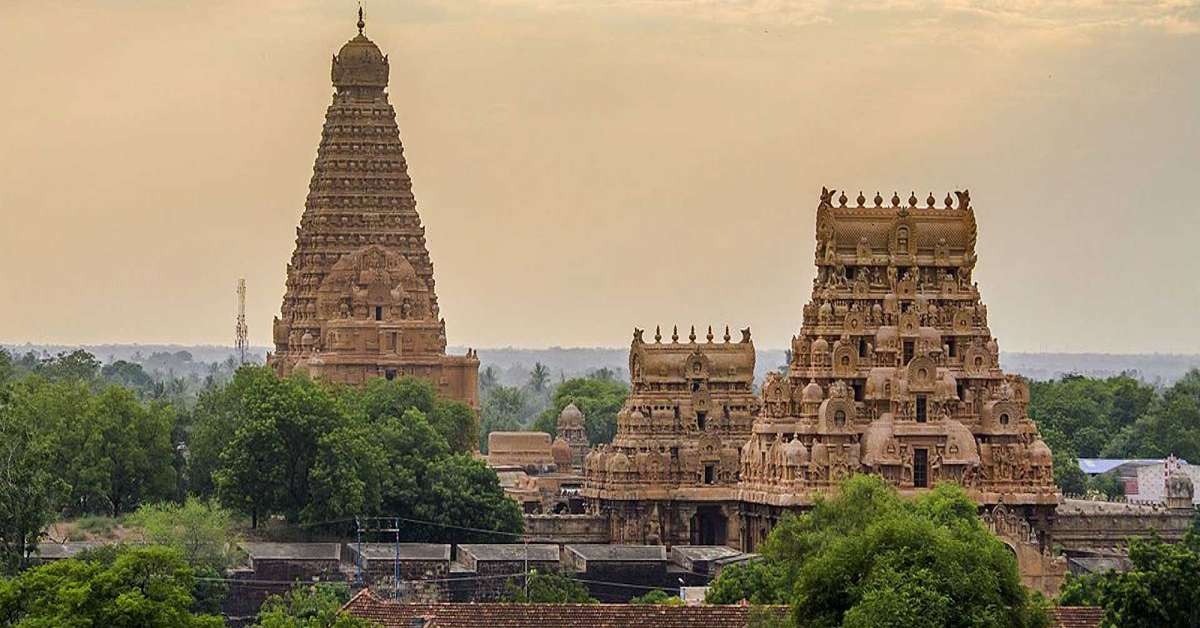Tamil Nadu, a land where ancient traditions meet modern dynamism, stands as a testament to India’s rich heritage. Often referred to as the “Temple State of India,” it’s a place where history whispers from every stone, and culture thrives in every corner.
1. Geography & Climate
- Location & Borders: Situated in the southernmost part of India, Tamil Nadu shares borders with Kerala, Karnataka, and Andhra Pradesh, and has a long coastline along the Bay of Bengal and the Indian Ocean.
- Topography: The state’s landscape is diverse, featuring the majestic Western Ghats in the west, the fertile plains along the Cauvery River delta, and the extensive coastline. The Nilgiri Hills, a part of the Western Ghats, are a prominent feature.
- Climate: Tamil Nadu experiences a tropical climate. Summers (April-June) are hot and humid, with temperatures reaching up to 40°C. The Northeast monsoon (October-December) brings the majority of the rainfall, while winter (December-February) is mild.
2. History & Cultural Heritage

- Colonial & Post-Independence Era: The region saw significant British influence, with Madras (now Chennai) being a major colonial hub. Tamil Nadu played a crucial role in India’s freedom struggle. Post-independence, it became a separate state in 1956.
- Cultural Diversity: The Tamil people have a distinct culture, with the Tamil language being one of the oldest classical languages. Hinduism is the predominant religion, with significant Christian and Muslim populations.
3. Major Cities & Infrastructure
- Capital & Important Cities: Chennai, the capital, is a major economic and cultural center. Coimbatore, Madurai, Tiruchirappalli (Trichy), and Salem are other important cities, each with its own unique character.
- Transport Facilities: Chennai International Airport is a major aviation hub. The state has an extensive railway network and well-maintained highways. Public transport, including buses and metro rail, is readily available.
4. Economy & Industries
- Agriculture: Rice, sugarcane, cotton, and groundnuts are the main crops. The Cauvery delta is a vital agricultural region.
- Industries & Business Hubs: Tamil Nadu is a leading industrial state, with major sectors including automobiles, textiles, and IT. Chennai is known as the “Detroit of India” for its automobile industry. IT hubs are concentrated in Chennai and Coimbatore.
- Tourism Contribution: Tourism is a significant contributor to the state’s economy, with millions of domestic and international tourists visiting annually.
5. Tourism & Must-Visit Places

- Natural Attractions: The Nilgiri Hills, with hill stations like Ooty and Kodaikanal, are popular tourist destinations. The Gulf of Mannar Marine National Park is a biodiversity hotspot.
- Heritage & Historical Sites: The Brihadeeswarar Temple in Thanjavur, the Shore Temple in Mahabalipuram, and the Meenakshi Amman Temple in Madurai are UNESCO World Heritage Sites. Fort St. George in Chennai is a historical landmark.
- Modern Attractions: Chennai’s Marina Beach, amusement parks like MGM Dizzee World, and museums like the Government Museum are popular attractions.
- Festivals & Cultural Events: Pongal, the harvest festival, is the most important festival. Thaipusam and Navratri are also widely celebrated.
6. Cuisine & Local Delicacies

- Famous Dishes: Idli, dosa, sambar, and rasam are staples of Tamil cuisine. Biryani, Chettinad chicken, and fish curry are also popular.
- Street Food & Beverages: Filter coffee, jigarthanda, and sundal are popular street food items.
7. Education & Research
- Top Universities & Institutions: IIT Madras, IIM Tiruchirappalli, Anna University, and Christian Medical College (CMC) Vellore are renowned institutions.
- Educational Achievements: Tamil Nadu has a high literacy rate and has made significant strides in higher education and research. The state has a literacy rate of roughly 80%.
8. Government & Administration
- Current Governance: The state has a democratically elected government with a Chief Minister and Governor.
- Administrative Structure: Tamil Nadu is divided into 38 districts, each with its own administrative machinery.
9. Unique Facts & Trivia
- The Tamil language is one of the oldest surviving classical languages in the world.
- The Brihadeeswarar Temple in Thanjavur was built without the use of mortar.
- The Nilgiri Mountain Railway is a UNESCO World Heritage Site.
- Tamil Nadu has one of India’s largest coastlines, extending roughly 1,076 km.
10. Conclusion
Tamil Nadu is a state that beautifully blends tradition and modernity. From its ancient temples and rich cultural heritage to its thriving industries and educational institutions, it offers a unique and enriching experience. Whether you’re a history buff, a nature lover, or a foodie, Tamil Nadu has something to offer everyone. Explore its vibrant culture, savor its delicious cuisine, and discover the soul of southern India.
FAQ’s
Q. What is the best time to visit Tamil Nadu?
The best time to visit Tamil Nadu is during the winter months, from November to February, when the weather is cooler and more pleasant.
Q. What is the main language spoken in Tamil Nadu?
The main language spoken in Tamil Nadu is Tamil.
Q. What is the famous food of Tamil Nadu?
Famous foods include idli, dosa, sambar, rasam, biryani, Chettinad chicken, and filter coffee.
Q. What are the major festivals celebrated in Tamil Nadu?
The major festivals celebrated in Tamil Nadu are Pongal, Thaipusam, Navratri, and Deepavali.
Q. What are the hill stations in Tamil Nadu?
Popular hill stations in Tamil Nadu include Ooty (Udhagamandalam), Kodaikanal, and the Nilgiri Hills.




